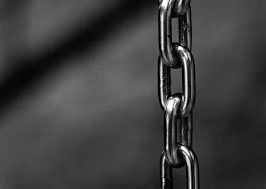By Om Rupani
There’s no point in defining subspace. It is a particular locale of consciousness. As with all locales of consciousness, you have to be there to know what it is — Love, Bliss, Union, Existential Crisis, Dark Night Of The Soul, Envy, Resentment, etc.
Let’s instead sketch out a rough map that can help you get to subspace more reliably. Here are 3 pointers.
1. LOWER THE SUBMISSIVE’S VIGILANCE
You are asking someone to surrender to you. You are asking someone to give up control. You are going to have to convince them that it is safe for them to do so. Normally, we take care of ourself with our own vigilance. The more uncertain and dangerous our environment is in any given moment, the higher our state of vigilance.
Vigilance is energy consuming. It is exhausting. If you remain vigilant incessantly without being able to take a break from it, you will literally have a nervous breakdown. Paranoid and manic episodes resemble our vigilance mechanism in overdrive.
DOM’S ROLE IN REDUCING THE SUBMISSIVE’S VIGILANCE:
Be steady. Be calm. And become your submissive’s environment. The Dom is a buffer zone between the submissive and the rest of the world. And the Dom’s claim is, ‘Within this buffer zone of my presence, my field, you can relax because I’ve got you covered. I’m vigilant enough for both of us. I’m keeping watch, so you rest.’
Everything that makes you more uncertain or jittery as a Dom will lower your ability to make this offer to your submissive.
Keep your attention on your submissive at all times. Respond to your submissive’s system moment to moment. This will convey to your submissive that it is safe for them to keep their vigilance turned low. The moment your attention falters, your submissive’s vigilance will go up
SUBMISSIVE’S ROLE IN REDUCING THEIR OWN VIGILANCE.
Trust. Give your Dom a chance to hold you. Give up the narrative that nobody is strong enough to hold you or nobody is interested in holding you.
Forgive! Forgive past breakdowns. Forgive the times in the past when you were not held well. Create new opportunities and occasions for your own surrender.
2. SEDUCE/LEAD/PUSH THE SUBMISSIVE INTO HER CHAOS
At the beginning levels of your exploration in D/S, it is sufficient to say: ‘The submissive GIVES UP control. The Dom TAKES control.’ Well and good. When you have done this for a while, and you have paved the path to subspace with your own experiences a few times, you will observe that a more precise way to describe this journey would be to say, ‘The submissive is TAKEN out of control, and the Dom TAKES the submissive out of control.’ This state of ‘out of control’ is the submissive’s zone of CHAOS. The point of a D/S scene is for the submissive to access her chaos. And because accessing one’s chaos is a dicey affair, it’s good to have someone else there who is holding the container and guiding you into that chaos. And it is very much recommended that someone be there to bring you OUT of the chaos when your ride is over. Once you make this transition from the giving/taking of control to the guiding of submissive to and from her chaos, you will more deeply understand what the Dom-Sub partnership is about. You will understand that it is actually NOT about POWER, centrally. At the heart of D/S play is the Submissive’s Chaos.
DOM’S ROLE IN PUSHING THE SUBMISSIVE INTO HER CHAOS:
Don’t be afraid to take control of your submissive’s system. In fact, get off on it. Be present enough that you can take control skillfully and masterfully.
Deal with your own shadow. Be familiar with your own chaos. Taking someone into their chaos is a shamanic act. Would you trust yourself to a shaman who has not done their own work? Taken their own journey? Dealt with their own chaos?
Be prepared for anything. Initially you may come to this play just looking to add fun elements to your erotic life. That is also well and good. But our Eros is complicated and all tangled up. If you really want to dig deep into your partner’s Eros, you need to be able to deal with everything your partner’s eros is tangled up in. Be ready for all the rest. It’s coming.
SUBMISSIVE’S ROLE IN ACCESSING HER CHAOS:
Know that this is the true point of your surrender. Your primary surrender is to your Dom. Your ultimate surrender is to your own chaos.
Be gracious. To ask your Dom for a scene is to essentially ask your Dom to push you into your chaos. If you are making this invitation to your Dom, follow through! Be ready to go. Plunge in. Be courageous. Do your part. Don’t waste your Dom’s time and energy. And appreciate your Dom for holding this space for you so that you can dive and take your journey.
3. SURRENDER TO THE SUBMISSIVE’S CHAOS
The submissive’s chaos is the king of the scene. The submissive’s chaos rules over both the Dom & the Sub. The submissive bows down to the submissive’s chaos; the dom bows down to the submissive’s chaos. The submissive’s chaos has the final word in what any particular scene is really about.
DOM’S AND SUB’S ROLES IN SURRENDERING TO THIS CHAOS:
Listen to the chaos. Respond to the chaos. Dance with the chaos. It’s ok to set intentions and pick a direction for your scene, but your plans don’t trump the chaos that emerges. Do not resist the chaos, she will always win. If you fight her, she will fragment and destroy your scene. Trust that there are greater forces at play in our soul journey, and the pieces of this journey come through the portal of chaos. Birth is messy. Make room for the mess. Celebrate it. See the potentiality in it.
Integrate. Chaos is not the final step, integration is. Don’t leave the submissive in their chaos. Bring them back. Come back. As the Dom, do superlative aftercare. There can be deep love and affection and bonding in integration. This is heavy-duty Oxytocin land. Enjoy and relish the sweetness of integration. As the sub, don’t get hooked on your chaos. You can’t really hold on to your chaos; you can only hold on to false drama of chaos. Shun the drama. Integrate what you have experienced instead. Come back into wholeness. Do what you need to do to integrate from THIS ONE SCENE. If there is more chaos to be dealt with, grapple with it next time. There is always more chaos to deal with. Our levels go on and on.
— Om Rupani




















